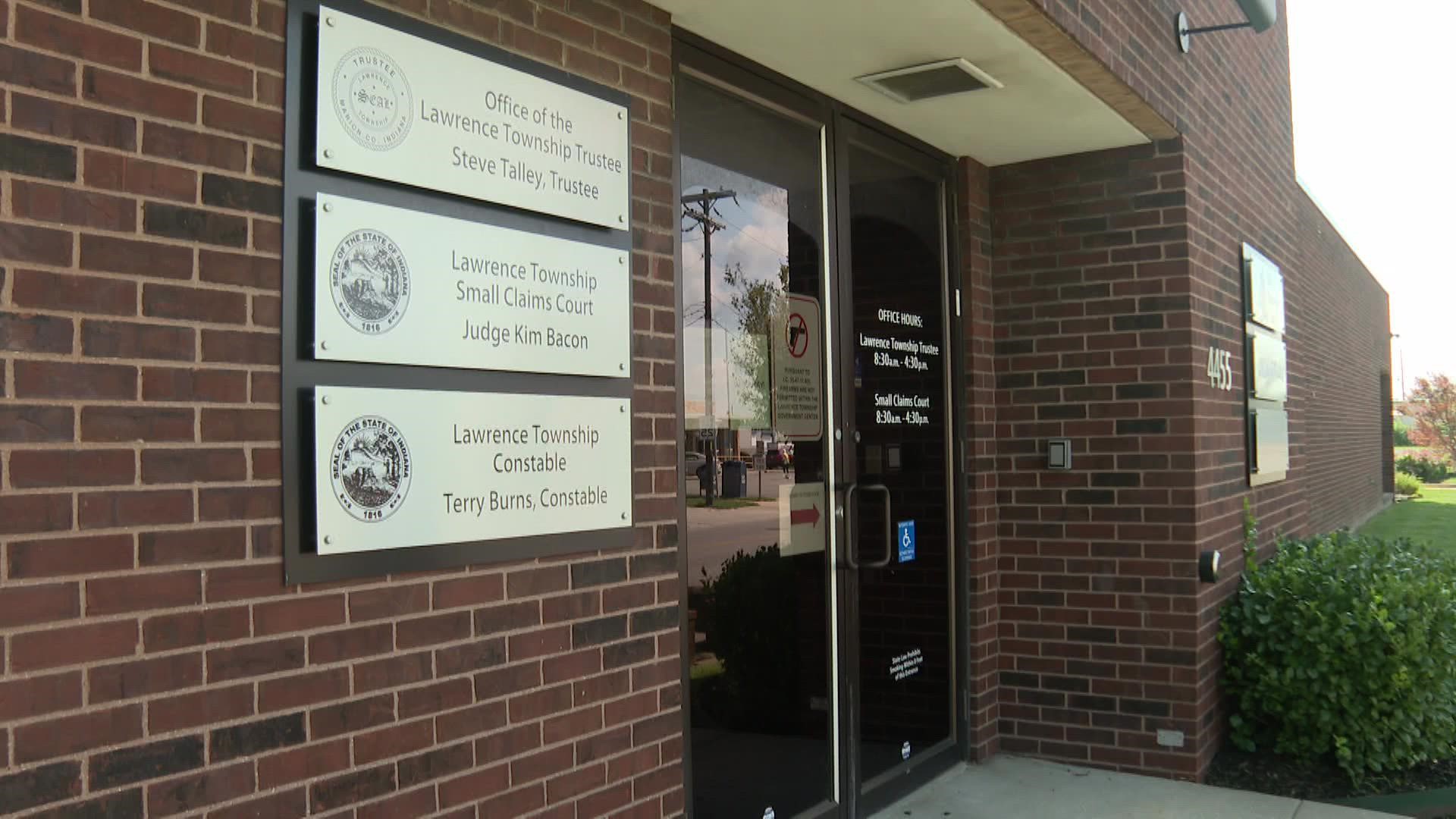INDIANAPOLIS — After the CDC eviction moratorium ended last month, small claims courts have been slammed with eviction cases.
It’s estimated 93,000 Hoosier households that include about 84,000 children are behind on rent and at risk of eviction, according to National Equity Atlas’ Rent Debt Dashboard
“We will work as judges within our communities to try and make sure we create a win-win for both sides,” said Judge Kimberly Bacon with the Lawrence Township Court in Marion County.
Since January, 1,177 eviction cases have been filed in Lawrence Township. When looking at the docket for September and October, the court has 446 hearings scheduled.
“What I have found is that many tenants don’t know that the resources are out there until they come to court,” Bacon said.
According to recent data, about 83 percent of Hoosier households behind on rent haven’t applied for assistance.
“We have become a central, integral part to this whole process of getting the tenant assistance programs out there to the tenants, so they are able to get the resources,” she said.
To help, Marion County launched the Tenant Advocate Program that offers legal help at small claims courts for people late on their payments. So far, at least six of the nine townships in the county have signed up.
The advocates help tenants with their cases and connect them to available resources. If a tenant has applied for assistance, advocates can also update them on the status of their application.
“The tenants are appreciative and feeling like they have leveraged the situation they are currently in with an even playing field,” Bacon said.
In other cases, funds are not reaching tenants in time because the system is overwhelmed with applications. When that happens, Bacon tries to find a balance saying most judges are understanding of the process.
“Because I do understand that landlords need to have some funds coming in. They need to know that a tenant is committed to try and getting the delinquency paid off. So, if I can bring the parties together to come up with that kind of result, that’s what I am doing in my court,” said Bacon.
Facing eviction? Here are some options
1. Show up to your court date. Sometimes it’s the only time both parties can get together.
2. Begin the pursuit for resources before an eviction filling occurs. Here is a link to information about the state and local programs.
3. Apply for more than one program. So, if one program only gives you a certain amount, you are already supplementing that with something else.
4. Call legal clinics for help if an eviction is filed:
- Indianapolis Legal Aid Society: 317-635-9538
- Neighborhood Christian Legal Clinic: 317-429-4131
- Indiana Legal Services: 317-631-9410
5. Come prepared and organized to court with receipts and information. It helps if you have a payment arrangement in mind. You can call the Indy Rent program at 317-912-1260 and also check the status of your application here.
6. To try to resolve things outside of court, Indiana offers a free settlement conference program for landlords and tenants. All communication can be completed over the phone or online and you can participate even if you already have an eviction case filed in court.
“It’s overwhelming but for me, I believe that because this is my community, I want to make sure my community is stable. I want that child that may be subject to an eviction when a parent comes to court, that they are continuing to go to school, and they can remain in the township," Bacon said. "So, I attend to work with the parties to make that happen because it’s not just a parent getting evicted, it’s a whole family.”

